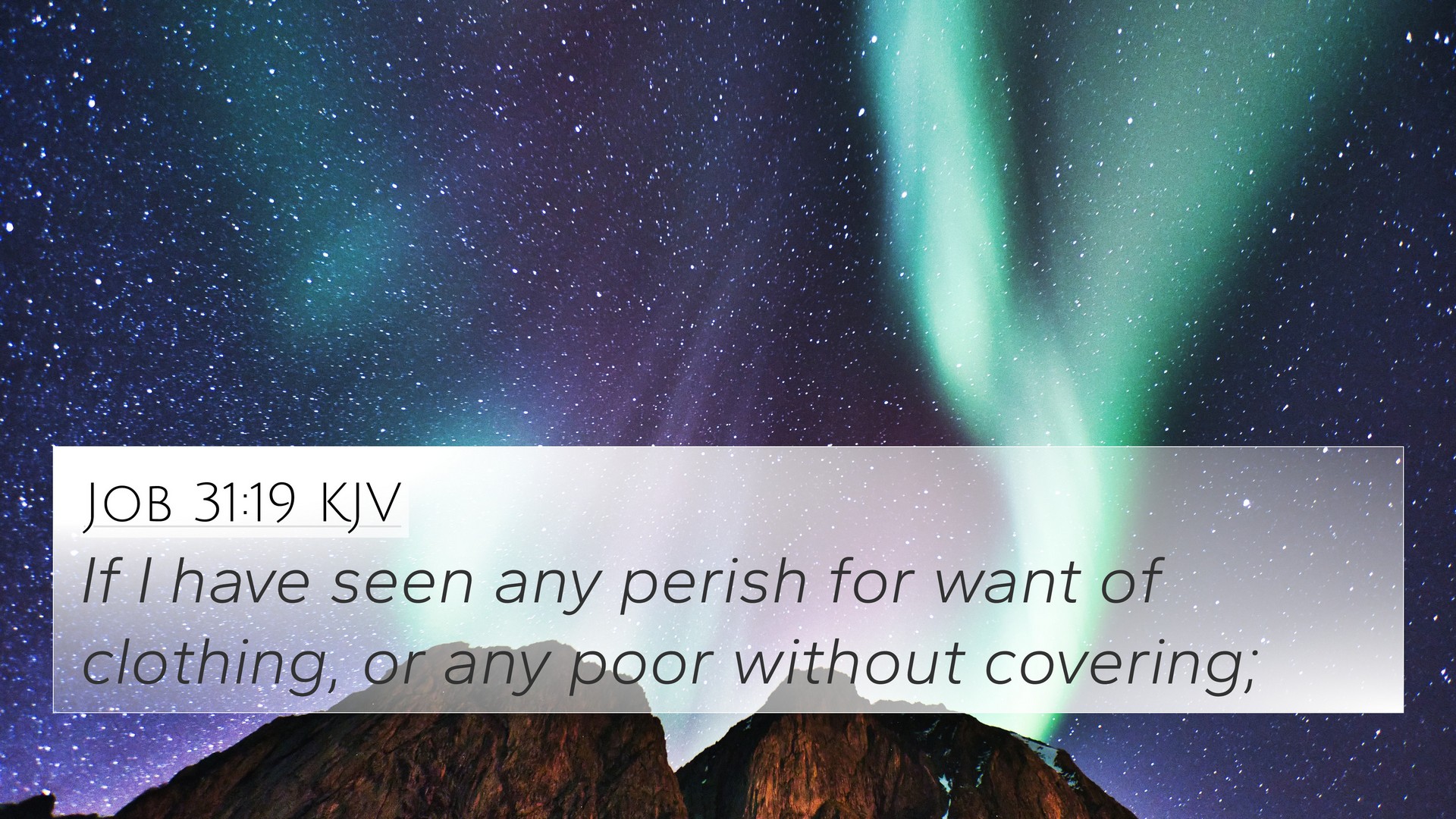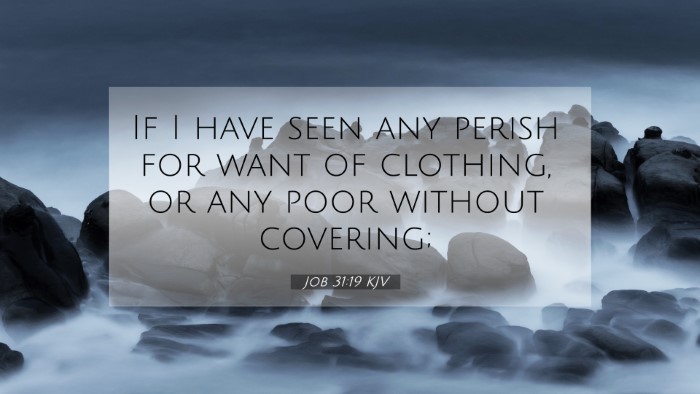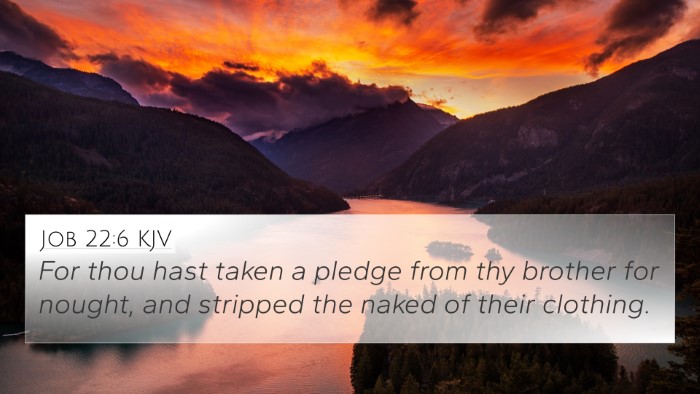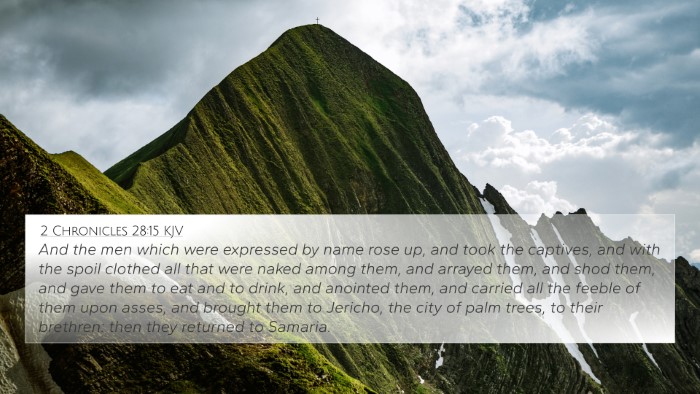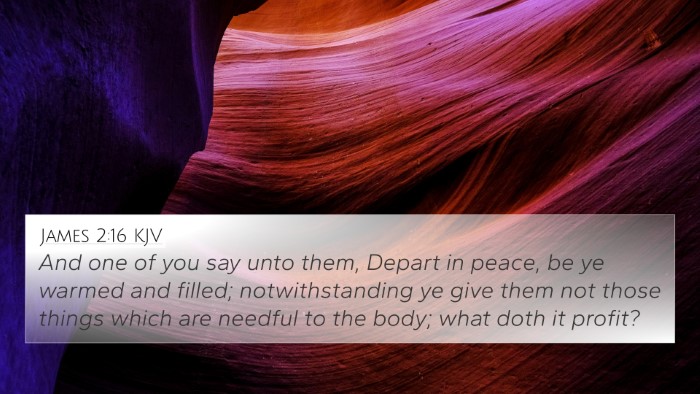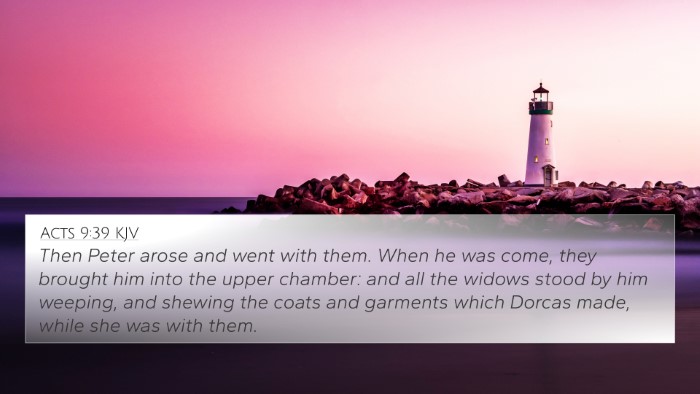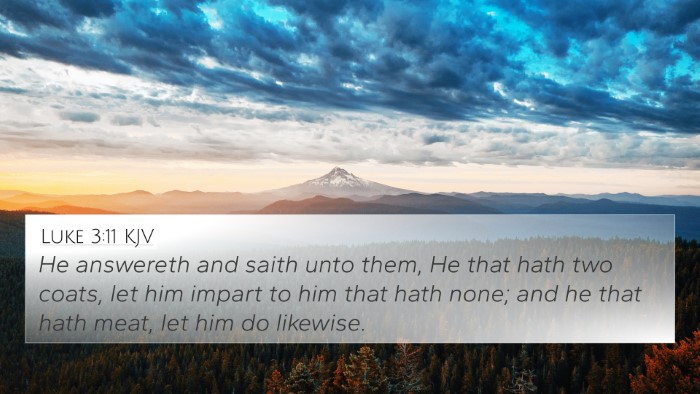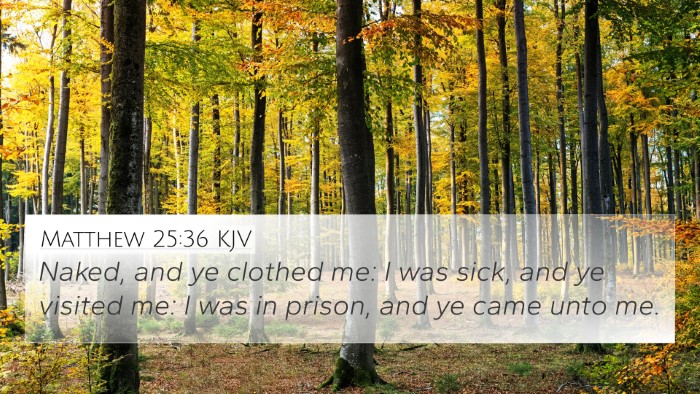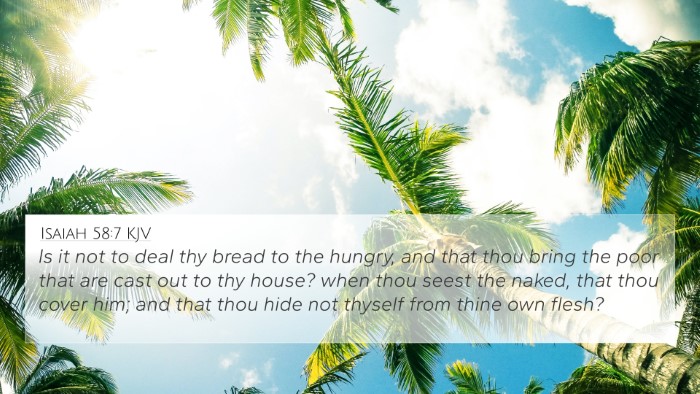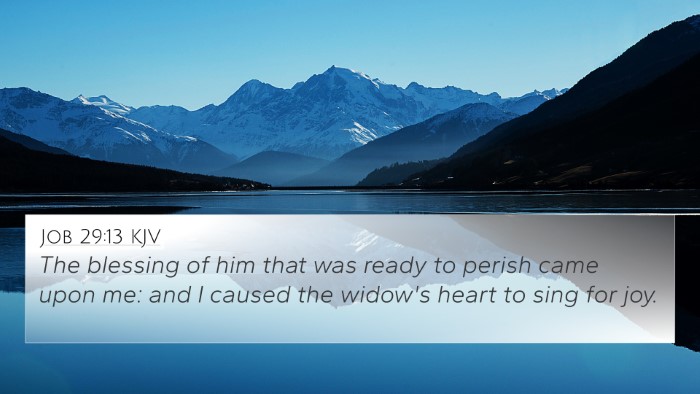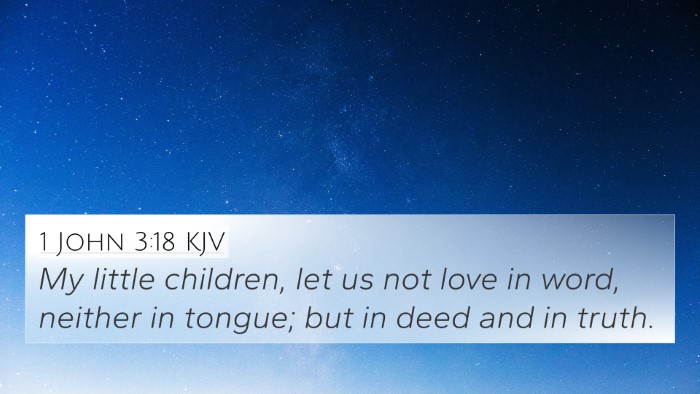Understanding Job 31:19
Job 31:19 states, "If I have seen anyone perish for lack of clothing, or any poor without covering." This verse is part of Job's defense of his integrity, in which he enumerates the ways he has lived righteously and justly, showing his compassion for the poor.
Summary of Insights from Public Domain Commentaries
This verse reflects Job's care for the needy and his commitment to justice. Let us delve into the interpretation of this verse using insights from notable commentators like Matthew Henry, Albert Barnes, and Adam Clarke:
Matthew Henry's Commentary
Henry emphasizes Job's moral standing, discussing how his life was marked by a sense of duty towards others. He points out that Job was not only concerned for the spiritual well-being of his community but also for their physical needs. This speaks to the broader biblical principle of compassion for the less fortunate, illustrating Job's understanding of social responsibility.
Albert Barnes' Commentary
Barnes adds that the statement reflects Job’s acknowledgment of his affluent position and the responsibility it brings. He interprets 'seeing anyone perish' as a vivid description of Job's ministry of care—suggesting that he took action when faced with the suffering of others. Job stands as a model for how wealth should be used to help those in need.
Adam Clarke's Commentary
Clarke highlights the severity of the situation implied by the verse. According to him, Job’s question indicates a moral examination of his life, asking if he ignored the plight of the poor. Clarke warns readers that neglecting the least among us constitutes a grave sin, reinforcing the necessity for awareness and action towards poverty and desperation.
Cross-Referencing Biblical Texts
To deepen our understanding of Job 31:19, it’s beneficial to explore its connections with other Scripture verses. Below are Bible cross-references that relate to the themes of this verse:
- Proverbs 19:17: "Whoever is generous to the poor lends to the Lord, and he will repay him for his deed." - This verse emphasizes the virtue of generosity and God's promise to reward kindness to the needy.
- Matthew 25:35-40: "For I was hungry and you gave me food, I was thirsty and you gave me drink..." - Christ identifies with the poor, reiterating the importance of caring for those in need.
- James 1:27: "Religion that is pure and undefiled before God the Father is this: to visit orphans and widows in their affliction..." - This emphasizes the biblical view of true religion being marked by acts of compassion towards the marginalized.
- Lamentations 3:34-36: "To crush underfoot all prisoners of the earth, to deny a man justice..." - This speaks to God’s displeasure with injustice, supporting Job's claims of righteousness.
- 1 John 3:17: "But if anyone has the world's goods and sees his brother in need, yet closes his heart against him, how does God's love abide in him?" - A call to action for believers to demonstrate love through tangible support for others.
- Luke 4:18: "The Spirit of the Lord is upon me, because he has anointed me to proclaim good news to the poor..." - Demonstrating Jesus’ mission to uplift the afflicted aligns with Job's expression of concern for the poor.
- Isaiah 58:7: "Is it not to share your bread with the hungry, and bring the homeless poor into your house..." - God calls His people to engaged compassion and action in the face of poverty.
Thematic Bible Verse Connections
Job 31:19 serves as a reminder that throughout the Scriptures, there is a consistent theme that emphasizes caring for the less fortunate and standing against injustice:
- Compassion for the Poor: The Bible consistently calls for care and consideration of those who are less fortunate, as represented in Job’s lament.
- Justice and Righteousness: The pursuit of justice is a recurrent biblical theme that challenges the faithful to reflect divine principles in their treatment of others.
- Human Responsibility: Job's statement highlights the human obligation to assist others, presenting a model for how wealth and resources should be utilized.
Tools for Bible Cross-Referencing
For readers seeking to delve deeper into cross-referencing Biblical texts, there are various tools available:
- Bible Concordance: A resource that lists biblical words and their occurrences, enabling readers to find topics and verses easily.
- Bible Cross-Reference Guide: A helpful tool to check for thematic and contextual connections between verses.
- Cross-Reference Bible Study: Methods and materials that provide structured approaches for analyzing and understanding scripture.
Conclusion
In conclusion, Job 31:19 invites Christians to reflect on their role in society and challenges them to actively participate in the betterment of others’ lives. Integrating insights from historical commentaries alongside notable Bible verse cross-references enriches our understanding and illustrates the weight of our moral responsibilities as believers. The connectedness of Scripture demonstrates that God’s message is consistent and timeless in its call to justice, compassion, and care for the vulnerable.
